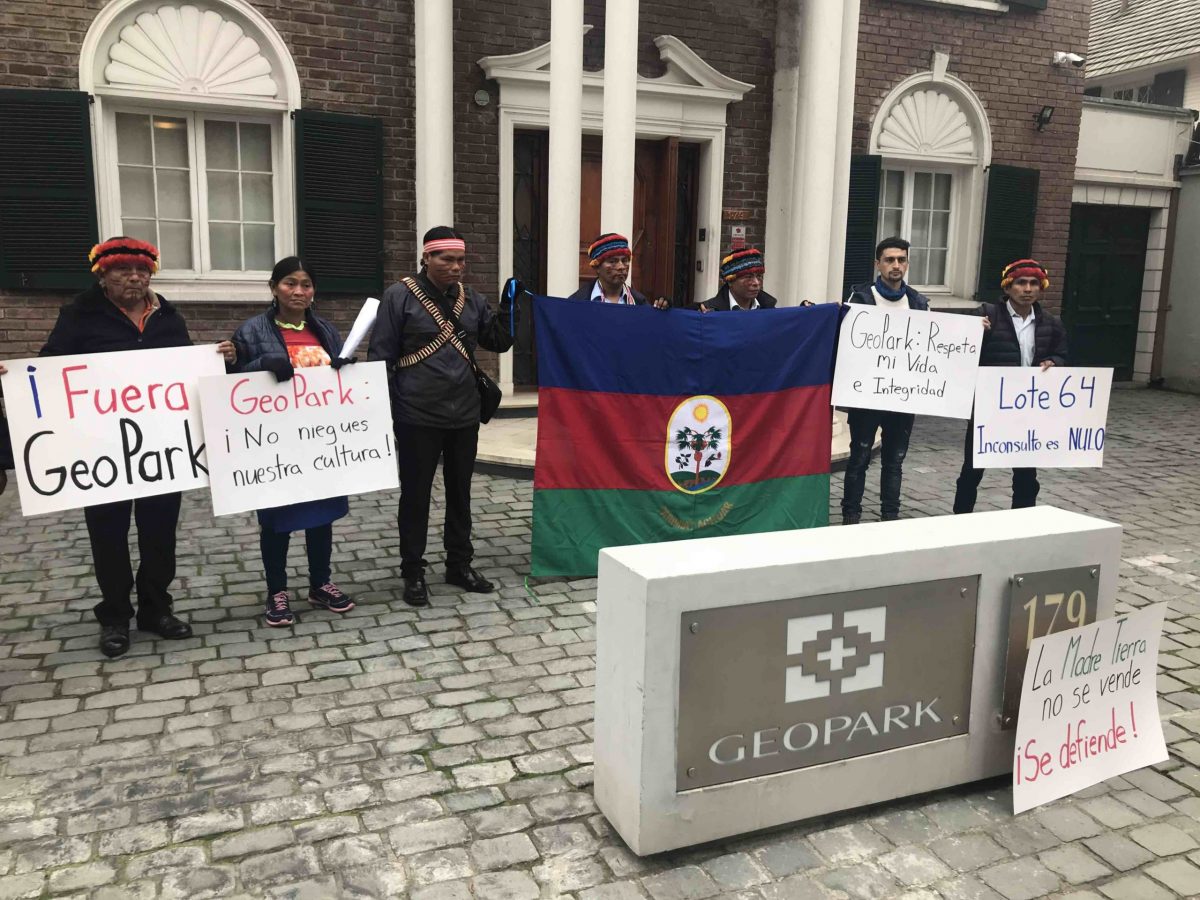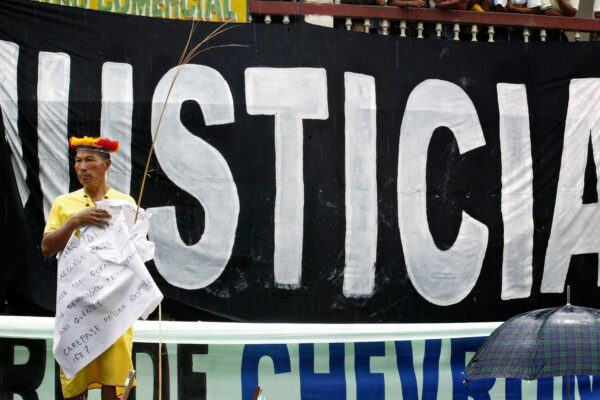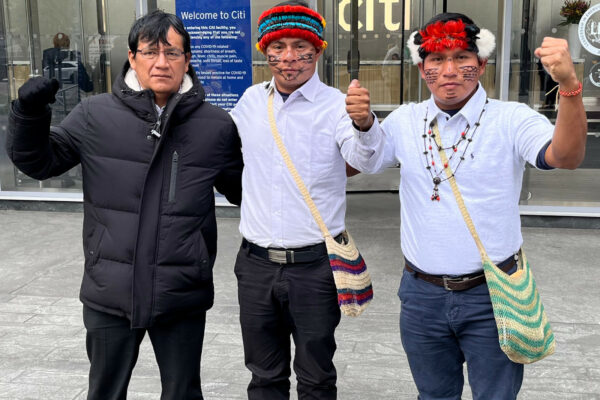Santiago, Chile – GeoPark (NYSE: GPRK) must leave oil concession Block 64 in the Peruvian Amazon or face growing community resistance, Achuar and Wampis indigenous leaders told CEO James Park and other senior managers and board members during the company’s annual shareholder meeting last Thursday, June 27th. Eight indigenous leaders of both the Achuar People of Pastaza and the Wampis Nation attended the meeting and reiterated their firm rejection of any oil operations within their ancestral territories.
Nelton Yankur Antich, president of the Federation of the Achuar Nationality in Peru (FENAP), which represents 45 communities located in both the Pastaza and Morona river basins, said, “We are here specifically to manifest our decision not to permit the entry of GeoPark into our territory.”
In turn, each of the indigenous delegates – five of the Achuar people and three of the Wampis Nation – expressed their rejection of any oil activity within their territory and demanded the definitive withdrawal of GeoPark from Block 64, which the company refers to as their Morona or Situche Central Project.
GeoPark CEO James Park, responding to reiterated expressions of opposition and demands for their departure, attempted to suggest ongoing dialogue into the future, ostensibly to understand the indigenous concerns better and learn. He justified GeoPark’s presence in Block 64 as having received an invitation from the Peruvian government and said it would be “irresponsible” to break their current commitments to the Peruvian government and some local communities.
The delegation rejected the overture for further dialogue, stating that they had already made their case many times to GeoPark, which to date has never responded officially. Achuar leader Sumpinianch Mitiap handed a packet of documents to James Park, including a series of public statements, official notifications, and international press articles that expressed their position dating back to 2016, when GeoPark received authorization from the Peruvian authorities to proceed with their process of an environmental impact study.
The delegates stated that they had traveled very far from their homelands to force GeoPark to listen to them and that now is the time for the company to make a decision. The indigenous delegates said that if the company attempts to return to their territory or if they don’t withdraw the heavy machinery that is currently housed in the Peruvian military base Sargento Puño, that the indigenous communities would be forced to take further action.
“The issues we’ve brought here, you already know,” stated Julio Hinojosa, a Wampis leader. “Discuss them, examine them, analyze them, come to a conclusion, and then you can communicate with us in writing through our legal advisors in Lima.”
Amazon Watch’s Andrew Miller, who accompanied the delegation and meeting at GeoPark, made the following commentary:
“After years of ignoring the Achuar and Wampis resistance against their oil project in the Peruvian Amazon, GeoPark can no longer wish away this overwhelming rejection. The leaders told James Park to his face that their mandate is to expel all oil activity from their territories, just as they told the CEOs of previous oil companies, all of which eventually left. GeoPark likes to think of itself as somehow different from other oil companies, but fundamentally it isn’t. The indigenous resistance is holding strong and will continue increasing if GeoPark insists on attempting to advance with their project in Block 64.”
These events are significant for several reasons:
- The importance of Block 64 in Peru’s plans to expand the oil industry, which is currently playing itself out in the heated debate about the proposed Hydrocarbons Law;
- The resistance of the Achuar and the Wampis is emblematic of other, less visible struggles for territorial defense and resistance against extractive industries across the Amazon; and
- This kind of direct exchange between community leaders and extractive industry executives at their headquarters is a rare but powerful tactic in campaigns for corporate accountability.
Additional Information:
While in Chile, the delegation held a series of other meetings and public activities. With the objective of raising the profile of their campaign against GeoPark and requesting support, they met with the United Nations Office of the High Commissioner for Human Rights, the National Institute for Human Rights, the Mapuche Political Platform, the Citizen’s Observatory organization, and a representative of the UN Working Group on Business and Human Rights.














